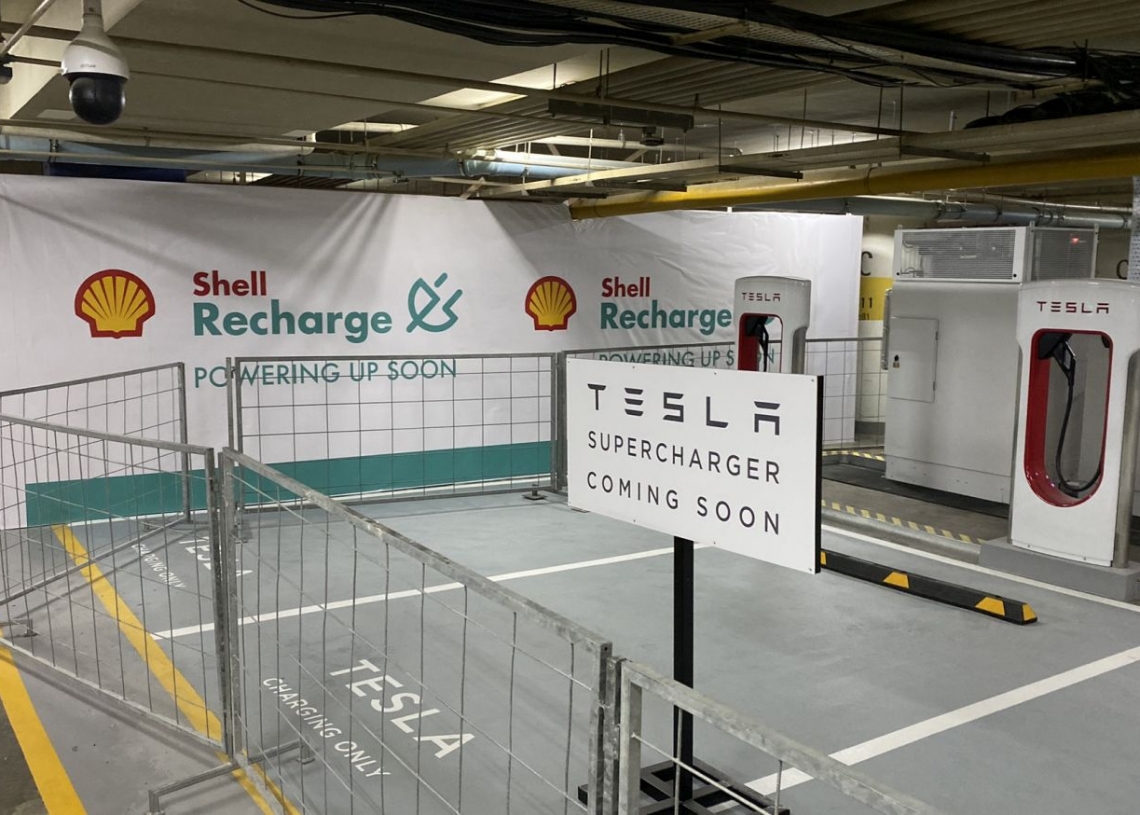The Future Of Electric Motors: Diversifying Supply Chains And Reducing China's Influence

Table of Contents
The Current Landscape: China's Dominance in Electric Motor Manufacturing
China's influence on the electric motor industry is undeniable. This dominance stems from control over key raw materials and significant manufacturing capabilities.
Raw Material Dependence
China holds a near-monopoly on the mining and processing of several rare earth minerals crucial for high-performance electric motors.
- Neodymium and Dysprosium: These are essential for the powerful permanent magnets used in many electric motor designs, particularly those in EVs and wind turbines.
- Praseodymium and Terbium: Also critical for magnet production, these rare earths contribute to the efficiency and power output of electric motors.
- Other Rare Earths: Several other rare earth elements are used in smaller quantities but remain vital for optimal motor performance and longevity.
The geopolitical implications of this dependence are significant. Disruptions to Chinese supply could cripple global electric motor production, impacting not only the automotive sector but also renewable energy and numerous other industries.
Manufacturing Capacity and Expertise
China boasts massive manufacturing capacity and a wealth of experience in electric motor production. This has allowed Chinese companies to achieve economies of scale and develop advanced manufacturing techniques.
- Leading Chinese Companies: Companies like BYD, CATL, and several others are major players in electric motor technology and production, often integrating their motors directly into their EV designs.
- Global Competition: This concentration of manufacturing and technological expertise gives China a significant competitive advantage, presenting a challenge for other nations seeking to enter or expand their presence in the electric motor market.
Strategies for Diversifying Electric Motor Supply Chains
To mitigate the risks associated with China's dominance, several strategies are crucial for diversifying the global electric motor supply chain.
Investing in Domestic Manufacturing
Many countries are actively pursuing policies to stimulate domestic electric motor production.
- Government Incentives: The US, EU, and other nations are offering substantial tax breaks, grants, and subsidies to attract investment in electric motor manufacturing facilities.
- Challenges of New Manufacturing: Establishing new manufacturing facilities requires significant upfront capital investment, skilled labor, and robust supply chains for ancillary components. Overcoming these hurdles is vital for successful diversification.
Strengthening International Partnerships and Collaboration
International collaboration is essential to share technological advancements and resource access.
- Successful Collaborations: Examples from other industries, such as semiconductor manufacturing, demonstrate the benefits of joint ventures and technology sharing agreements between nations.
- Challenges of International Collaboration: Issues like intellectual property protection, trade regulations, and differing regulatory environments can complicate international partnerships.
Technological Innovation and Resource Substitution
Research and development are crucial for finding alternatives to rare earth-dependent technologies.
- Alternative Materials: Scientists are exploring materials like ferrite magnets and high-temperature superconducting materials that could reduce reliance on rare earths in electric motors.
- R&D Investments: Increased public and private investment in research and development is paramount to accelerating the adoption of these alternative technologies and securing a more sustainable future for electric motor production.
The Geopolitical Implications of Supply Chain Diversification
Diversifying electric motor supply chains has far-reaching geopolitical implications.
Enhanced National Security
A diversified supply chain enhances energy security and reduces vulnerability to geopolitical instability.
- Resilience to Disruptions: Reducing reliance on a single source of electric motors strengthens the resilience of national economies and reduces the risk of supply chain disruptions due to political tensions or natural disasters.
- National Security Strategies: Diversification is increasingly recognized as a vital component of national security strategies, particularly in the context of growing technological competition and global uncertainty.
Promoting Fair Trade Practices
A more equitable global electric motor industry fosters sustainable practices and fair labor conditions.
- Sustainable Sourcing: Diversification provides opportunities to source raw materials responsibly and ethically, minimizing environmental impact and promoting sustainable practices.
- Fair Labor Practices: Establishing transparent and accountable supply chains is crucial to ensure fair labor conditions and worker rights throughout the entire production process.
Conclusion
The dominance of China in the electric motor industry presents significant risks to global economic and political stability. Diversifying electric motor supply chains is not merely a matter of economic efficiency but a strategic imperative for national security and global economic resilience. The strategies discussed—investment in domestic manufacturing, international collaboration, and technological innovation—are crucial for building a more secure and balanced electric motor industry. We must prioritize these efforts to ensure a sustainable and equitable future for electric motor technology and the electric vehicle revolution. Learn more about the future of electric motor production and the ongoing efforts to build resilient and diversified supply chains. Engage with organizations working to advance electric motor technology and sustainable manufacturing practices to support a more secure and equitable global electric motor industry.

Featured Posts
-
 The Poirier Retirement Controversy Paddy Pimbletts Viewpoint
May 04, 2025
The Poirier Retirement Controversy Paddy Pimbletts Viewpoint
May 04, 2025 -
 Enjoy 100 Rebate On Shell Recharge Hpc Ev Chargers This Raya East Coast
May 04, 2025
Enjoy 100 Rebate On Shell Recharge Hpc Ev Chargers This Raya East Coast
May 04, 2025 -
 Green Trains Exploring The Potential Of Wind Power For Railways
May 04, 2025
Green Trains Exploring The Potential Of Wind Power For Railways
May 04, 2025 -
 Lab Owner Admits Guilt In Covid 19 Test Result Fraud
May 04, 2025
Lab Owner Admits Guilt In Covid 19 Test Result Fraud
May 04, 2025 -
 Is There A Feud A Body Language Expert Analyzes Blake Lively And Anna Kendricks Interactions
May 04, 2025
Is There A Feud A Body Language Expert Analyzes Blake Lively And Anna Kendricks Interactions
May 04, 2025
Latest Posts
-
 Watch The Chicago Cubs Vs La Dodgers Mlb Tokyo Series Online A Streaming Guide
May 04, 2025
Watch The Chicago Cubs Vs La Dodgers Mlb Tokyo Series Online A Streaming Guide
May 04, 2025 -
 Fox Bolsters Streaming Ambitions With Peter Distad Hire
May 04, 2025
Fox Bolsters Streaming Ambitions With Peter Distad Hire
May 04, 2025 -
 Volkanovski Vs Lopes Ufc 314 Main Event Betting Odds And Expert Insights
May 04, 2025
Volkanovski Vs Lopes Ufc 314 Main Event Betting Odds And Expert Insights
May 04, 2025 -
 No Cable No Problem How To Stream Fox Shows And Sports
May 04, 2025
No Cable No Problem How To Stream Fox Shows And Sports
May 04, 2025 -
 Foxs Direct To Consumer Streaming Strategy Peter Distads Appointment
May 04, 2025
Foxs Direct To Consumer Streaming Strategy Peter Distads Appointment
May 04, 2025
